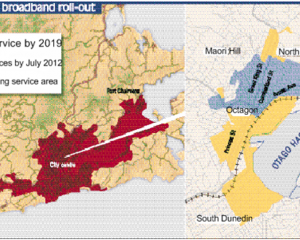The new contracts have been awarded to Gen-I, 2degrees, and Vodafone. They include all voice minutes and data used on mobile phones held by government employees.
Mr Joyce said the public sector-wide procurement programme was aimed at making government buying as efficient as possible and reducing costs. It included all public sector agencies, councils and up to 2500 schools.
"Every dollar saved means extra support for improved public services, essential infrastructure and for growing the economy.
"We are continuing to show the substantial negotiating power of government when procuring for all-of-government services.
"Mobile voice and data services are a significant cost for government so these new contracts are a great result."
Gen-I enterprise clients general manager Greg Mikkelsen said the contract would also improve business efficiency and productivity by streamlining and simplifying the purchasing process for agencies, eliminating the need to issue and review multiple tenders.
"Gen-i recognises government as a single vertical market. Our tailored mobility solutions will scale to enable government to unlock larger savings as more agencies come on board, providing better value for investment and year-on-year savings," he said.
2degrees chief sales officer Mark Cleary said the company looked forward to delivering to government agencies what it had done for consumers and businesses.
"Government budgets are clearly being reviewed at every level and 2degrees offers a painless way to save millions of dollars off the current cost of communications for government."
Winning the confidence of the Government was a significant milestone for 2degrees after less than three years in the market.
New Zealand phone users had "clearly benefitted" from three-player competition and now the same could happen for government organisations, Mr Cleary said.
Vodafone director of sales Grant Hopkins said the new deal promoted converging technologies and reflected the way New Zealand government workers were now using communications technology.
"Many Kiwis now prefer to communicate via TXT message, social media or online and increasingly via their smartphone."
The convergence of mobile voice and data services also provided opportunities to create cost savings by reducing duplication and changing the requirement for fixed-line services, he said.






